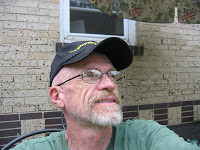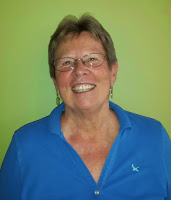Once again in writing on the early years of Harry Hay’s queer activism, the late 1940’s and early 1950’s, I am relying heavily on the wonderful collection of Hay’s writings edited by Will Roscoe from 1996 and aptly called Radically Gay. Do check out Will’s web site for further info on Radically Gay and Will’s many other books and writings: http://willsworld.org
In thinking about the topic “connections” I pulled Radically Gay off my bookshelf this morning to re-explore Hay’s concept of subject-Subject Consciousness, a profound and co-equal form of human connection, as opposed to subject-to-object. In scanning the book I came across the story of Hay’s first attempt at a call-to-arms to try and get homosexuals to begin organizing themselves. This manifesto from 1948 was rather awkwardly titled: Bachelors Anonymous (Radically Gay. Page 3.). Now that is a name describing gay men I think we can all be glad did not catch on. Two years later, with his then lover Rudi Gernreich and several others, the Mattachine movement was launched and the rest as they say “is history”. According to Roscoe within a few short years there were an estimated 5,000 homosexuals in California involved in one form or the other with the Mattachine movement. Remember this would have been in the early 1950’s in the era of McCarthyism.
Many would say that Hay’s greatest contribution to the LGBTQI movement was his insistence that we are a cultural minority. To quote Hay from Radically Gay:
“We are a Separate People with, in several measurable respects, a rather different window on the world, a different consciousness which may be triggered into being by our lovely sexuality” (Radically Gay. Page 6.)
I would contend that one of the “measureable respects” in how we differ from heterosexuals is a mode of communication, a form of connection, Hay called subject-to-Subject. In a position paper he wrote in 1976, while living in New Mexico entitled, Gay Liberation: Chapter Two- Serving Social and Political Change through our Gay Window, Hay lays out his vision of subject-Subject Consciousness (Radically Gay. Pages 201-216). I encourage all Queers to get the book and read especially this chapter.
Right out of the box he owns that this essay puts forth a Gay Masculine point of view while acknowledging that Feminine Consciousness also exists but is something quite different. I will go way out a limb here and suggest that the lesbian-feminist movement of the 1960’s and 1970’ was all over this non-objectifying form of connecting woman-to-woman.
The essence of subject-to-Subject is that of equal to equal. My very simplistic interpretation of this form of consciousness is that we gay men have a leg up on the hetero world in that we as men relating to men and women relating to women are better able to approach one another as equals without the burden of centuries of institutionalized objectification and sexism i.e. crudely put “Me Tarzan you Jane’.
However, even we as gay men, as opposed to straight men, approach relating to one another with a fair amount of objectifying cultural baggage. It may not involve the competition that comes with landing a mate for procreative purposes but we do often indulge in only hooking up with someone of the ‘right age, skin color, cock size, class background’ etc. This is an area where we need to go back in our lives to that first almost always non-sexual attraction to another boy that was so electrifying. That realization that even though I am ‘other’ so is he. A genuine sense of “equal to equal, sharer to sharer”, we are truly kindred spirits. What an exhilarating form of connecting that was for so many of us.
Gay men in particular still have as much work to do in this area of personal subject-to-Subject relating as we ever have especially once the roiling hormones of sexual attraction bubble to the surface. I am not sure that Grindr could not aptly be renamed “Bachelors Anonymous”. Though that first impulse for out of the box subject-to-Subject connecting still remains and hopefully is the essence of gay liberation. It remains our real gift to the world in this age of Trump regression and insanity.
© April 2017
About the Author
I was born in La Porte, Indiana in 1949, raised on a farm and schooled by Holy Cross nuns. The bulk of my adult life, some 40 plus years, was spent in Denver, Colorado as a nurse, gardener and gay/AIDS activist. I have currently returned to Denver after an extended sabbatical in San Francisco, California.


